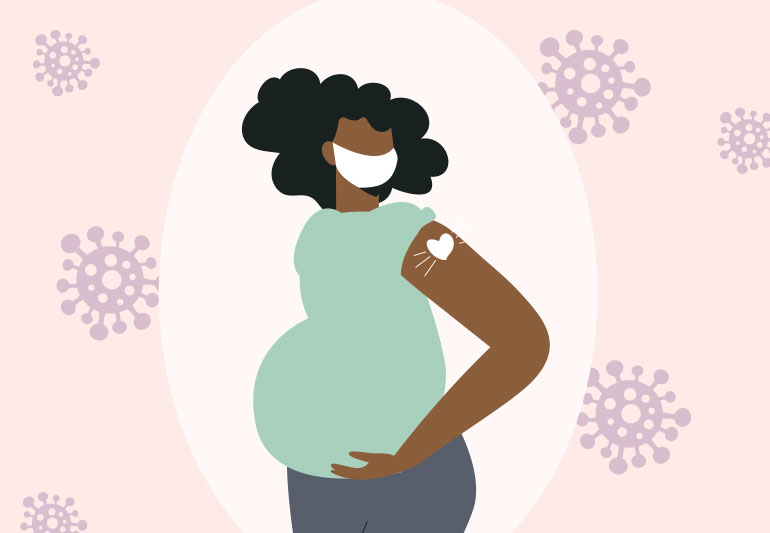Pregnant
women
Before receiving any vaccine while pregnant, you should consult with your healthcare provider (e.g., OBYGN) about what will be best for you.
As a general rule, most inactive vaccines, such as influenza, are safe and provide protection to pregnant women. Whereas live vaccines such as measles, mumps, and rubella (MMR), should be taken with caution.

typical vaccine guidelines during pregnancy
COVID-19
- All COVID-19 vaccines in Ontario are safe, and can be administered to women prior to becoming pregnant, during any trimester, and while breastfeeding.
Influenza
- All pregnant women should receive the influenza vaccine at any point along each of their pregnancies to protect both mother and infant.
- Influenza is one of the most important vaccines for pregnant women to receive as influenza can increase the risk of pneumonia, low birth weight, and preterm delivery, which dangers both the mother and fetus.
MMR
- The MMR vaccine is a live and should not be administered during pregnancy in most cases as it can increase the risk of miscarriage, stillbirth, or fetal malformations.
- The best time to receive the MMR vaccine is prior to pregnancy or after delivery and prior to hospital discharge, as protection against measles, mumps, and rubella is still needed.
Pertussis
- The pertussis vaccine (Tdap) should be administered during every pregnancy regardless of previous immunization, as the immunity begins to wane after several years.
- In majority of cases, it should be administered between 27-32 weeks of gestation.
- For mother’s who are more susceptible to risks during pregnancy, such as preterm delivery, it is suggested that the vaccine be administered between 13-26 weeks of gestation.
- In any case, mothers should be vaccinated with the Tdap vaccine at least 4 weeks before delivery as it will allow for optimal transfer of antibodies from the maternal body, to ensure both the mother and baby are protected.
- The Tdap vaccine poses no risk for either the mother or the fetus, and is estimated to protect 90% of infants younger than 3 months of age against pertussis.
